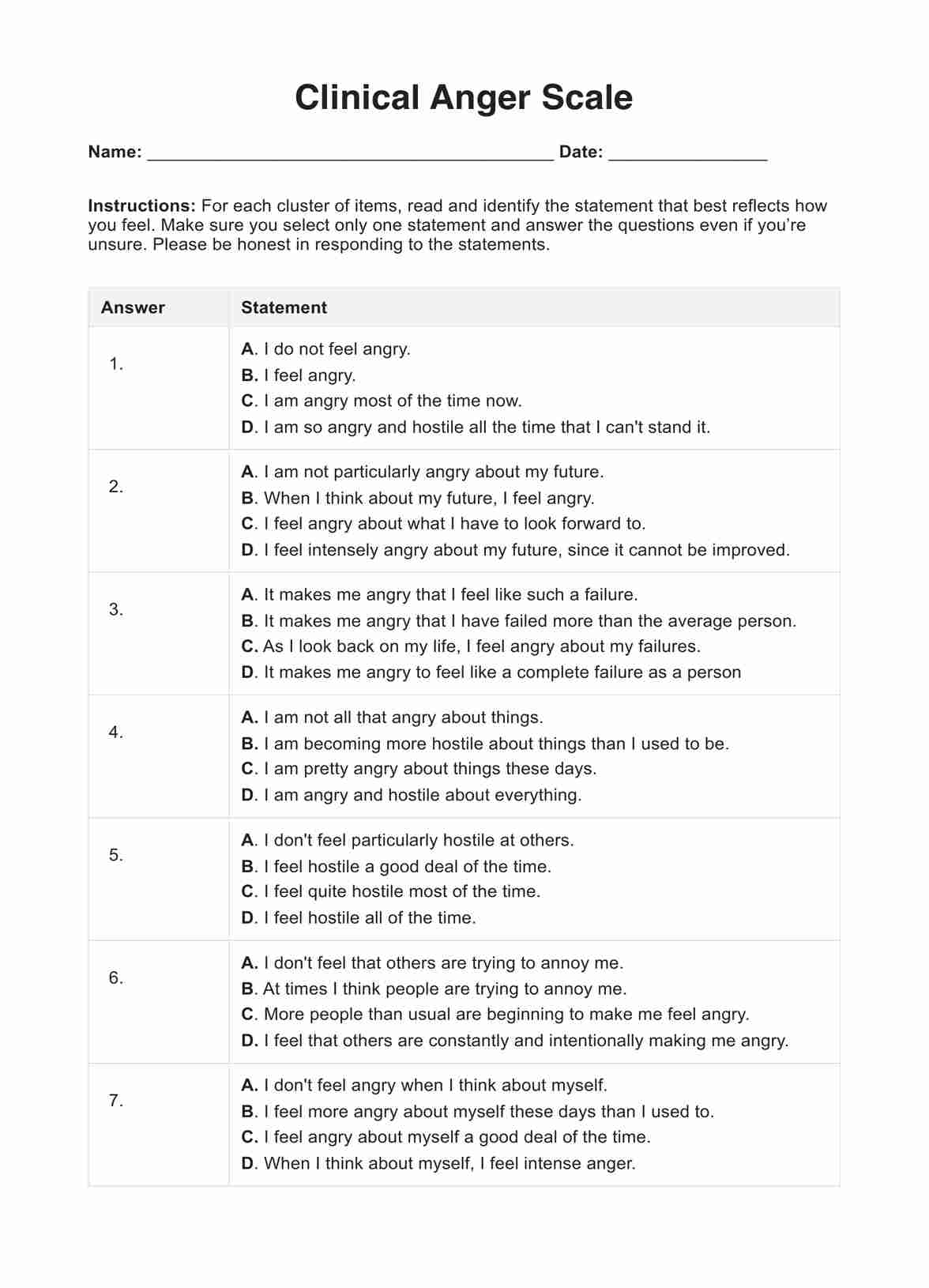It normally takes less than an hour to accomplish the Clinical Anger Scale.

Clinical Anger Scale
Use the Clinical Anger Scale to know if your patient has clinical anger or is responding well to their anger treatment.
Use Template
Clinical Anger Scale Template
Commonly asked questions
You can interpret the findings using the scoring guide provided in your template and at the start of this guide. Aside from the scoring guide, you will only need the total score obtained from the template.
Medical practitioners can use the clinical anger scale, especially mental health specialists like therapists, psychologists, and psychiatrists who help clients manage their anger or treat patients with clinical anger.
EHR and practice management software
Get started for free
*No credit card required
Free
$0/usd
Unlimited clients
Telehealth
1GB of storage
Client portal text
Automated billing and online payments











